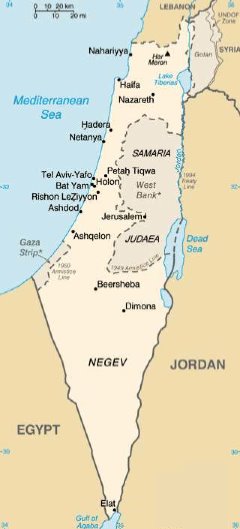In an effort to bolster the group's authority in the Gaza Strip, Hamas forces clashed with militants from Palestinian Islamic Jihad. During the incident, gunmen from Hamas shot one member of Islamic Jihad in the head, and several other members in the legs.
The Incident
Hamas recently enacted a ban against gunfire in public in a bid to bring order to the Gaza Strip. Members of Islamic Jihad eschewed that ban, and unleashed rounds into the air during a wedding celebration. Hamas gunmen confronted the militants and ordered them to stop, but those affiliated with Islamic Jihad refused.
The next day, Hamas militants stormed the homes of members of Islamic Jihad, trading fire and confiscating weapons. At one point, a Hamas member fired a rocket at an Islamic Jihad member's home.
The same day, Hamas gunmen chased Islamic Jihad fighters into a mosque, and then dragged them out. They proceeded to shoot one Islamic Jihad militant in the head, and several in the legs. Other Islamic Jihad members were arrested. After the incident a Hamas spokesman wrote, "We implemented the law."
Traditional Allies have Subtle Differences
What's so interesting about these incidents is that Hamas and Islamic Jihad have traditionally been closely allied. They both have an Islamist agenda, they call for the destruction of Israel, they have cooperated in attacks against Israel, they formed as offshoots of Egypt's Islamic Brotherhood, and they receive funds from Iran.
But there are some subtle differences. First, while Hamas has always given equal priority to attacking Israel and providing social services for poor Palestinians, Islamic Jihad has primarily focused on destroying the Jewish State.
Moreover, though both organizations originally refused to participate in the Palestinian Authority (essentially the Palestinian government) because it was created during the 1990's peace process with Israel, Hamas eventually ran candidates for the PA parliament. In addition, while both groups are Sunni and have ties to Shi'a Iran, Islamic Jihad is much more closely aligned with Iranian/Shi'a practices such as rule by clerics.
Politics and Gang Mentality
These differences, however, don't explain the recent violence. What does explain the violence is politics and gang mentality.
When Hamas and Fatah were battling in Gaza two months ago, Islamic Jihad decided to stay out of the fray. It considered such inter-Palestinian fighting an anathema to its cause and, paradoxically, the group thrived in the the chaos that existed during the Fatah-Hamas unity period. When Hamas routed Fatah and became the masters of Gaza, Hamas felt slighted that it had not received the support of its fellow Islamists.
Moreover, with Hamas now enforcing order, Islamic Jihad has become highly territorial in regards to its weapons and zones of influence. But Hamas has become equally if not more territorial, and sees itself as enforcer of the law in all of Gaza. Thus, as the Bloods and the Crips have squared off brutally to protect their interests, so have Hamas and Islamic Jihad.
Winners and Losers
If Hamas is willing and able to defeat Islamic Jihad as it did Fatah, there will be winners and losers. The first winner, of course, would be Hamas. Not only would it show once again that it is the dominant force in Gaza, but it would also lessen the likelihood of an attack from Israel. As Islamic Jihad has been responsible for most of the constant rocket attacks from Gaza, it has given Israel a ready excuse to invade and retaliate any time it wishes. But if Hamas crushes Islamic Jihad, Israel will be less agitated and Gazans are more likely to live calm lives.
The other winner would be Israel. As mentioned above, the daily barages of rockets would lessen, if not cease. And when there are attacks from Gaza, the Jewish State would have a clearer picture of who perpetrated the attack. Furthermore, as Hamas would be the sole political force in Gaza, it would have to focus on state-building and day-to-day administration rather than attacking Israel.
One loser, clearly, would be Islamic Jihad. It would be humiliated by defeat and lose one of its major bases of operation.
The primary loser, however, would be Fatah. Hamas will have done what Fatah couldn't or refused to do in over a decade of power: impose order. Though Fatah recently has been more successful in disarming opponents in the West Bank, its security forces do not seem to have the determination or discipline to fully enforce its will. Palestinians would compare the relative calm in Gaza to the corrupt and violent situation in the Fatah-controlled West Bank.
Read More......




